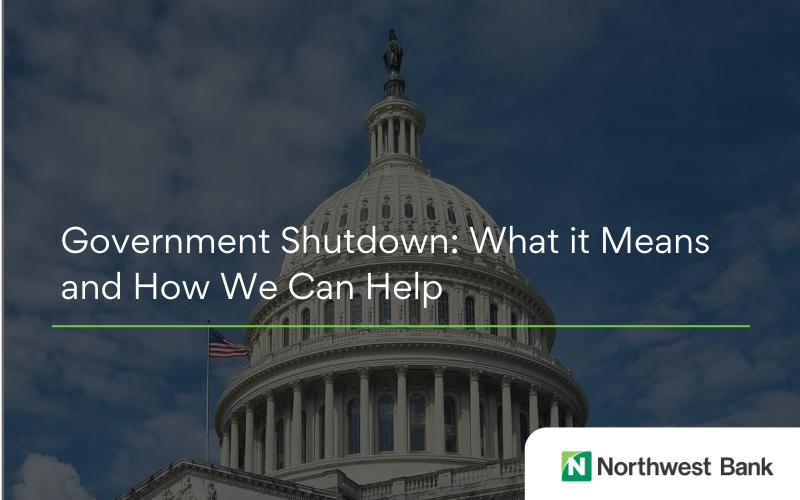How to Buy a House in Buffalo
A step-by-step guide for first-time and returning buyers
Key takeaways
- After pre- and post-COVID booms in housing prices, the market in and around Buffalo has leveled off, making it an attractive time to shop for a new home.
- First-time homebuyers should begin with education, including credit counseling, and the often-overlooked expenses of home ownership (like mortgage insurance and taxes).
- Working with a team of trusted and expert lenders and real estate professionals is key to finding a home that meets your needs and your budget.
This is the first of a series of articles to help buyers looking for a new home. In future stories we will explore market dynamics and provide helpful tips for homebuyers in Pittsburgh, Pennsylvania, Indianapolis, Indiana and Columbus, Ohio.
Home prices in states like California, Arizona and Florida soared in the years leading up to the 2008–2009 real estate crisis, then plummeted as credit dried up, foreclosures surged and demand collapsed.
In and around Buffalo, New York, however, the drama of rapidly rising and falling home prices was a non-story. “In 2008 we were so far under the national average for home prices that it had no effect whatsoever,” says Johnathan Graves, Regional Sales Manager for Northwest Bank in Buffalo. “We never had that boom that a lot of the country had.”
Housing prices rose significantly before and after COVID, with many former Buffalonians returning home with money to spend -- thanks to the sale of homes in expensive markets like New York City, Chicago and Washington, DC. Those booms drove prices higher, especially in desirable neighborhoods like North Buffalo and surrounding suburbs such as Williamsville.
But the days of above asking price bids on homes are largely gone now, both because the pandemic has passed and because interest rates remain elevated. “They definitely have leveled off,” Graves says.
Affordable doesn't mean easy
Today, the average Buffalo home costs just over $235,000, which is over 4% higher than last year. The median home sale price is $212,500, not far below the median list price of $213,283.
By comparison, the National Association of Realtors reports the median home-sale price in the U.S. is $403,700. There’s no arguing that it’s more affordable to buy a home in and around Buffalo. But that doesn’t mean there’s anything easy about finding a home that meets your and your family’s needs in a neighborhood where you want to live and for a price you can afford. Read on to learn strategies that will make you a better homebuyer, whether this is your first or tenth purchase.
Get educated
The homebuying process is not entirely straightforward or intuitive. First-time homebuyers should acknowledge up front that they need time to get up to speed on the many financial and non-financial aspects of finding and buying a home.
Much of this work, Graves says, should take place before even thinking about neighborhoods or the age, style and size of a home. Fortunately, there are ample resources to help you learn. “We have a lot of great housing agencies in our area that specifically work with first-time homebuyers,” Graves says. “They have free credit counseling, free home education classes and seminars. You might not be ready to buy a home when you start, but they’ll get you there.” Among other things, you’ll learn:
1. How to calculate a realistic budget
Your monthly payment includes more than just the mortgage. Developing an accurate estimate of monthly out-of-pocket expenses should also include taxes, insurance (including mortgage insurance) and maintenance.
A comprehensive budget will also include the down payment (typically between 3 and 20% of the home’s price) and closing costs (which can be upwards of 5% of the price). Clarity about the all-in expenses of home ownership will help you understand what you can afford.
2. The importance of your credit score
Reviewing your credit report and score with an expert will help you make sense of how both impact the interest rate and terms a lender offers.
3. Why prequalification and pre-approval matter
Prequalification is an estimate from a lender about how much you might be able to borrow to buy a home. Pre-approval is more formal and amounts to a conditional commitment to lend a specific amount. It's also a more rigorous process than prequalification and involves a lender reviewing your credit report, pay stubs, bank statements and taxes.
Even those who have bought a home before should refresh their knowledge. “Requirements change, and the market shifts,” Graves notes. “A buyer who last purchased 10 years ago might find they need to meet new loan criteria, or handle two mortgages if they’re buying before they sell.”
Working with a lender early
Getting pre-approved isn’t just smart, it’s a necessity. Many real estate agents won’t even show homes to buyers without a pre-approval letter.
“We should be one of your first calls,” says Graves. “We’ll help you figure out what you’re qualified for, what areas you can afford based on property taxes and what loan products might fit best.”
In Buffalo, property taxes can vary block to block, especially near municipal borders. A lender who understands the local tax structure can make sure you’re budgeting realistically. “One side of the street might be in the City of Buffalo and the other in a different township,” Graves explains. “That can mean a huge difference in monthly payments.”
Assemble a solid team
It takes a village to finance, find and purchase a home. Besides a knowledgeable lender, you’ll need:
- A real estate agent who brings the experience and expertise to match you with a home and community that meets your specific needs and budget. Williamsville, for example, is known for great public schools and family-friendly amenities. Elmwood Village and Allentown are regarded for their walkability and proximity to arts and culture.
- A closing attorney ensures all the legal aspects of a home purchase are handled properly. This includes verifying the property’s title, reviewing and preparing documents and managing the transfer of funds to purchase a home.
- A home inspector evaluates the structural integrity, roof, electrical and plumbing systems of a house to identify any problems or needed repairs.
Buying a house is a big deal. But it doesn’t have to be overwhelming. The best way to approach it is with education, preparation and a trusted support team.
“There’s a lot of misinformation out there,” says Graves. “But there are also great resources and people who want to help. Ask questions, stay curious and know that we’re here to guide you every step of the way."
Want to take the first step toward home ownership in Buffalo? Contact a Northwest Bank Mortgage Loan Officer to better understand the market, connect with educational resources and begin crafting a budget.




